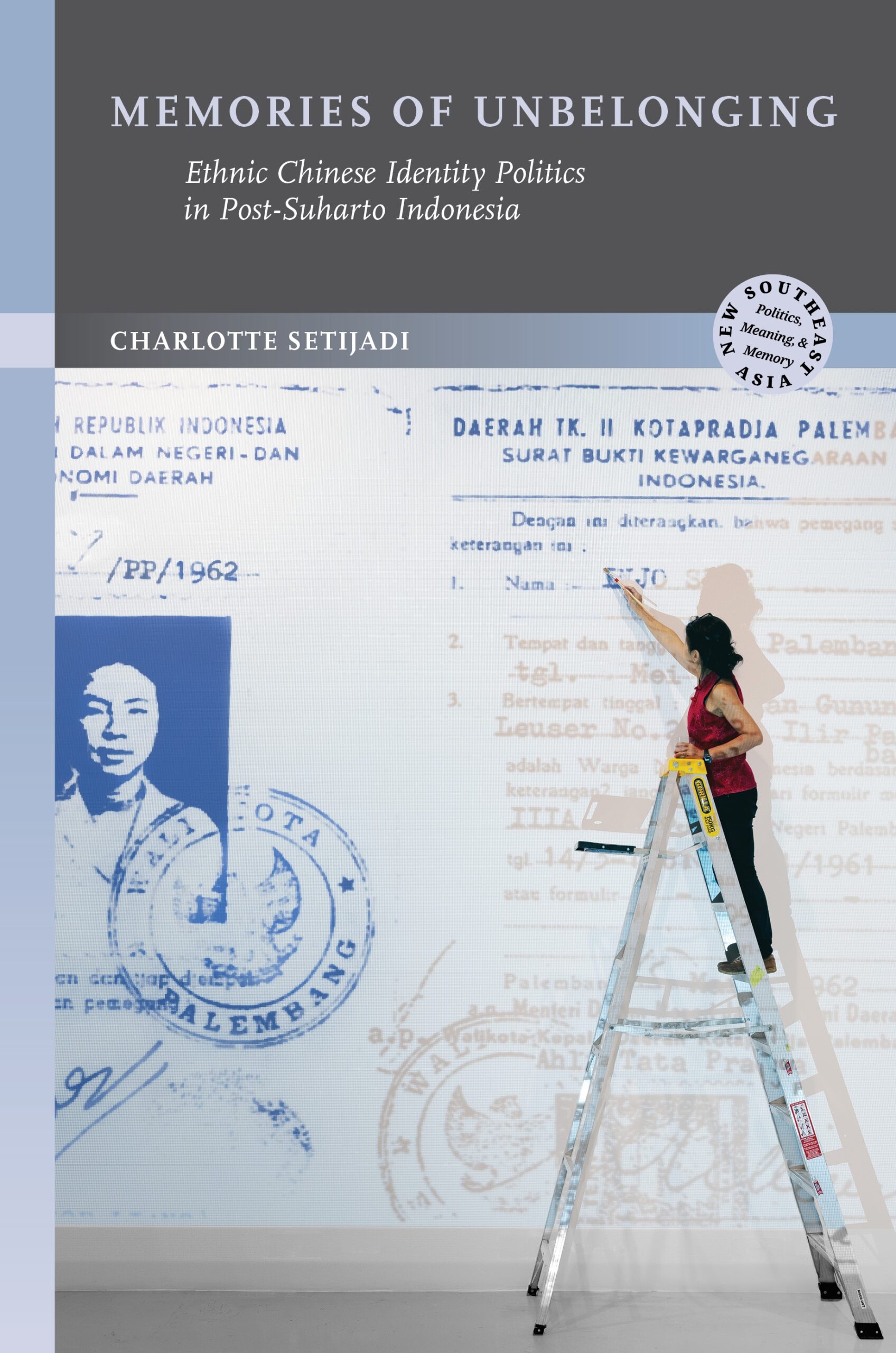Memories of Unbelonging: Ethnic Chinese Identity Politics in Post-Suharto Indonesia
- About the Book
-
The ethnic Chinese have had a long and problematic history in Indonesia, commonly stereotyped as a market-dominant minority with dubious political loyalty toward Indonesia. For over three decades under Suharto’s New Order regime, a cultural assimilation policy banned Chinese languages, cultural expression, schools, media, and organizations. This policy was only abolished in 1998 following the riots and anti-Chinese attacks that preceded the fall of the New Order. In the post-Suharto era, Chinese Indonesians were finally free to assert their Chineseness again. But how does an ethnic group recover from the trauma of assimilation and regain a lost cultural identity?
Memories of Unbelonging is an ethnographic study of how collective memories of state-sponsored ethnic discrimination have shaped Chinese identity politics in Indonesia. Combining case studies, in-depth primary data, and incisive analysis of Indonesia’s contemporary political landscape, anthropologist Charlotte Setijadi argues that trauma narratives are at the core of modern Chinese identity politics. Examining spaces and domains such as residential enclaves, educational institutions, the creative arts, and politics, this book paints a vivid picture of how different generations of Chinese Indonesians make sense of their historical trauma, ethnic identity, and belonging in a post-assimilation environment. Far from being passive victims of history, the ethnic Chinese are actively challenging old stereotypes and boundaries of acceptable Chineseness in the country.
This emphasis on group and individual agency marks a strong departure from structural analyses of Chinese Indonesians that mostly highlight their disempowerment as an oppressed minority. Furthermore, placing the analysis within the broader context of China’s rise in the twenty-first century demonstrates how the combination of persisting local anti-Chinese sentiments and renewed pride over China’s growing global dominance have prompted many Chinese Indonesians to re-evaluate their sense of ethnic and national belonging. By focusing on the nexus between collective memory, local identity politics, and the rise of China as an external factor, Memories of Unbelonging offers new perspectives of understanding about Chinese Indonesians, post-Suharto Indonesian society, and the relationship between China and ethnic Chinese communities in Southeast Asia.
- About the Author(s)
-
Charlotte Setijadi, Author
Charlotte Setijadi is assistant professor of humanities (education) in the School of Social Sciences, Singapore Management University.
- Reviews and Endorsements
-
- Memories of Unbelonging is an important work on the effects of collective memory and trauma on the identity formation of ethnic Chinese in Indonesia. Setijadi argues that there is a collective trauma that structures the public and domestic lives of ethnic Chinese in Indonesia that have produced essential characteristics of their “identity politics.” The book’s contribution is in the interaction between the unconscious structure of trauma and its sociocultural expressions that cut across different generations. Putting together a vast range of information and covering various sites of practices from the spheres of domestic household and neighborhood to higher education, as well as visual artistic domain and social and political organizations, Setijadi clears a space for us to see a coherent structure of the living past traumatic experience and memories that continues to shape the domestic and public lives of the ethnic Chinese in Indonesia today.
—Abidin Kusno, York University - Anti-Chinese discrimination and violence, fraught interethnic relations, and a sense of unresolved injustice continue to plague politics and society in present-day Indonesia. The author’s survey of the contemporary sociocultural, urban landscape inhabited by certain classes of Chinese Indonesians is a valuable assessment of developments since the post-1998 changes in state policy toward the Chinese. It is a portrait of progression, stagnation, creativity, and ongoing struggle from an “on the ground” perspective, going beyond a journalistic survey to offer substantial historical and theoretical context.
—Karen M. Teoh, Stonehill College
- Memories of Unbelonging is an important work on the effects of collective memory and trauma on the identity formation of ethnic Chinese in Indonesia. Setijadi argues that there is a collective trauma that structures the public and domestic lives of ethnic Chinese in Indonesia that have produced essential characteristics of their “identity politics.” The book’s contribution is in the interaction between the unconscious structure of trauma and its sociocultural expressions that cut across different generations. Putting together a vast range of information and covering various sites of practices from the spheres of domestic household and neighborhood to higher education, as well as visual artistic domain and social and political organizations, Setijadi clears a space for us to see a coherent structure of the living past traumatic experience and memories that continues to shape the domestic and public lives of the ethnic Chinese in Indonesia today.










